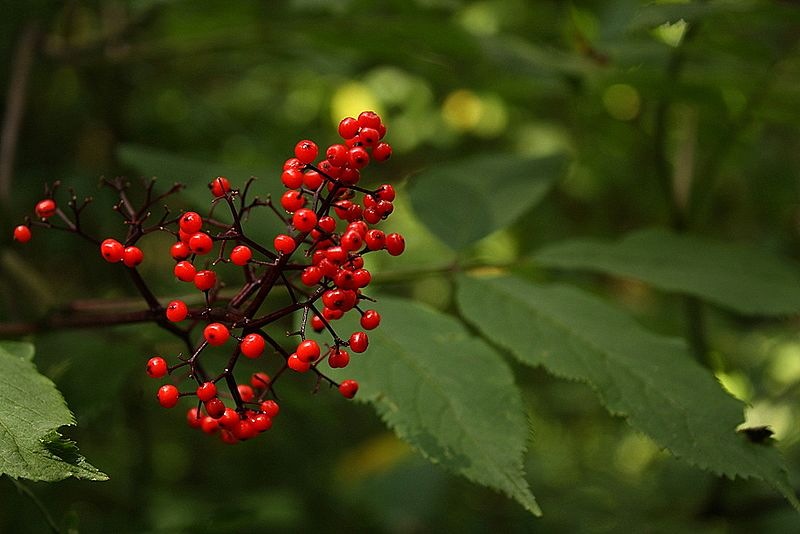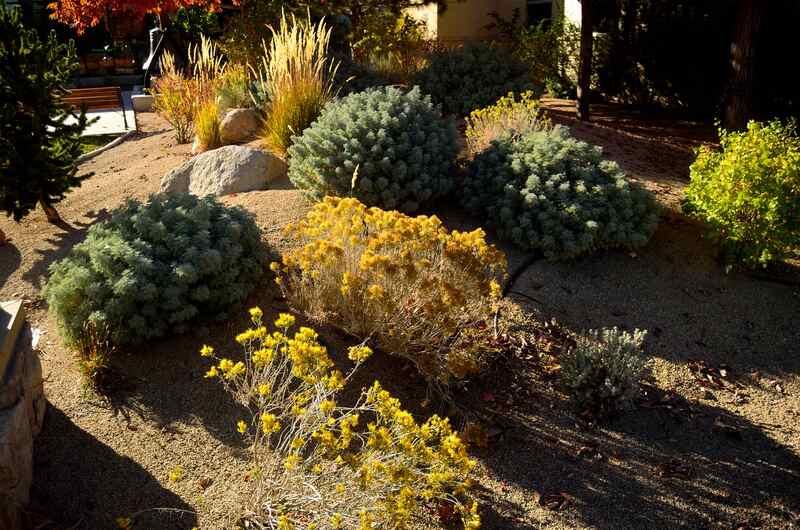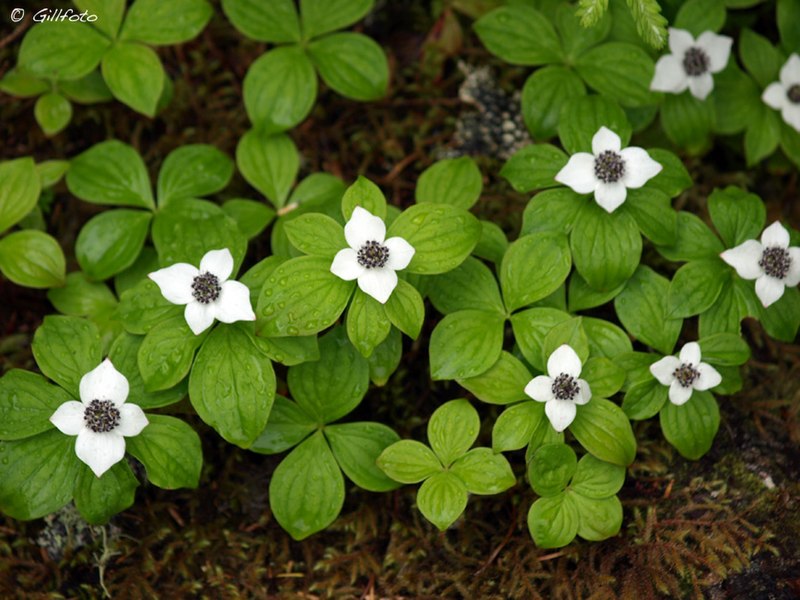8 Low-Maintenance Landscaping Ideas for Portland, OR
BY JEFFERY KEUSSEYAN | MAY 15TH, 2023 | LAWN CARE, OREGON, PORTLANDPortland is home to picturesque landscapes and beautiful hiking trails. If you’ve ever been to the Columbia River Gorge or Forest Park, you know exactly what we’re talking about. All this nature might inspire you to redesign your outdoor living space, but where do you start? We’ve listed 8 low-maintenance landscaping ideas for Portland that will give you the inspiration and knowledge you need to kickstart the project.
In this article:
- Suppress Weeds with Mulch
- Boost the Ecosystem with Native Plants
- Plant Perennials
- Conserve Water with Xeriscaping
- Go for an Automatic Irrigation Systems
- Plant Low-Maintenance Groundcovers
- Add Sustainable Hardscaping
- Consider No-Mow Artificial Grass
FAQ About Low-Maintenance Portland Landscaping
Professional Landscaping Services in Portland
1. Suppress Weeds with Mulch
Adding mulch to your garden or flower bed is a great start to obtain a low-maintenance landscape. It is an easy task that doesn’t require a professional landscaper. Mulch smothers weeds before they grow, retains moisture in the soil, and helps make the garden design look more attractive. Depending on your plants and preferences, there are two types of mulch for you to choose from:
Inorganic mulch:
- Doesn’t add nutrients to the soil
- Synthetic with no natural materials
- Best for fully blocking weeds
- Includes gravel and stone, plastic and landscape fabric
Organic mulch:
- Not made of anything synthetic
- Can suppress weeds, but not as well as inorganic mulch
- Best for adding beneficial nutrients to the soil
- Includes bark, grass clippings, and shredded leaves
Advantages of mulch:
- Adds nutrients to the soil (if organic)
- Protects soil and roots from harsh weather
- Controls the growth of weeds
- Retains moisture in the soil
Estimated cost: The amount you spend on mulch depends on which type you choose. Wood mulch costs $3 to $5 per 2 cubic foot bag, while landscape gravel costs $4 to $30 per 0.5 cubic foot bag.
2. Boost the Ecosystem with Native Plants

Red elderberry
Photo Credit: Leslie Seaton / Wikimedia Commons / CC BY 2.0
For anyone who wishes for a low-maintenance landscape in the Pacific Northwest, native plants are absolutely essential. They could improve your yard’s visual appeal, and serve as a valuable food source for hummingbirds and other pollinators.
Native plants will thrive in your area because they’ve already adapted to its dry spells, cold temperatures, and rainy days. Once established, they won’t need much fertilizing, watering, or other types of maintenance. With dozens of Portland native plants to choose from, here are a few suggestions:
- Red elderberry (Sambucus racemosa)
- California mock orange (Philadelphus californicus)
- Big Flower tellima (Tellima grandiflora)
- Pacific Bleeding Heart (Dicentra formosa)
Advantages of native plants:
- Less watering
- Little to no chemical treatments
- Easy to grow
- Heat and drought-resistant
- Occur naturally in the region and habitat
- Less prone to pests and disease
Estimated cost: Depending on the plant’s type and size, expect to pay between $600 and $3,000 per flower bed, $25 and $50 per shrub, $150 and $3,000 per tree.
3. Plant Perennials
With native perennials, you won’t need to think about adding new plants year after year. As the name suggests, perennials live longer than 3 years and come back on their own after their dormant season. They can provide some shade, attract pollinators, and improve the air quality in and around your property. Overall, these low-maintenance plants will adorn your landscape for years to come.
Below are some perennials that thrive in Portland’s USDA hardiness zones:
- Manzanita (Arctostaphylos)
- Cascara buckthorn (Frangula purshiana)
- Western sword fern (Polystichum munitum)
- Western hemlock (Tsuga heterophylla)
Advantages of perennials:
- Grow deep roots that improve the soil’s structure
- Provide shade to the soil and keep it moist
- Time-saving
- Serve as shelter and valuable food source for various bird species
Estimated cost: The cost of perennials depends on the plant’s size and type. On average, a perennial plant will cost you between $10 and $100.
4. Conserve Water with Xeriscaping

Photo Credit: Tom Hilton / Flickr / CC BY 2.0
Unlike traditional gardens, a xeriscaped yard does not require much water. That is essentially the entire point, to use as little water as possible while still maintaining an aesthetically pleasing landscape. Xeriscapes typically feature drought-tolerant plants such as succulents, local boulders, and shade trees.
Xeriscaping is a terrific idea for a wildlife-friendly, low-water, and low-maintenance landscape. Some other examples include:
- Rain gardens
- Rock gardens
- Rainwater recycling systems
Advantages of xeriscaping:
- Reduce water bill
- Less mowing, weeding, and watering
- Promote biodiversity
- Attract future buyers
- Help create an inviting outdoor space
Estimated cost: On average, the cost of xeriscaping ranges from $5 to $20 per square foot.
5. Go for an Automatic Irrigation System
An automatic irrigation system can help your landscape through dry spells. With this technology, you can have a watered lawn without manually watering the grass yourself. It helps you save time and reduce your water bill. All you need to do is set the timer and the sprinklers will take care of the rest.
Installing an irrigation system is not a cheap addition to your landscape. However, it is a worthy investment that could help increase your home’s resale value.
Advantages of automatic irrigation systems:
- Save time and money
- Easy-to-adjust system
- Ensures even distribution of water
- Automatically turns on when water levels are low
Estimated cost: Hiring a landscape contractor to install an irrigation system will cost you between $2,000 and $4,900, depending on your yard size and the system you choose.
6. Plant Low-Maintenance Groundcovers

Photo Credit: Gillfoto / Wikimedia Commons / CC BY-SA 2.0
Groundcovers are low-growing plants with lower maintenance requirements than traditional turfgrass. You will no longer have to mow, drain, or aerate your lawn. If you’re looking for a more traditional appearance, there are plain green groundcovers that will suit your preferences. On the other hand, you can go for the aesthetically pleasing groundcovers that add plenty of color to your lawn.
Below are hardy and evergreen groundcovers for you to choose from:
- Bunchberry dogwood (Cornus canadensis)
- White inside-out flower (Vancouveria hexandra)
- Cascade barberry (Mahonia nervosa)
- Liverleaf wintergreen (Pyrola asarifolia)
Benefits of groundcovers:
- Reduce weed growth
- Help prevent soil erosion
- Retain moisture in the soil
- Attract beneficial insects
- Pest-resistant
- Conserve water
Estimated cost: On average, the cost of planting groundcovers ranges from $10 to $25 per square foot without installation.
7. Add Sustainable Hardscaping
Hardscapes are non-living elements that are naturally low-maintenance, such as decorative or practical structures. They require no pruning, watering, or fertilizing. Hardscape features can help define areas in your yard, and improve your outdoor space functions. However, they will still require the occasional cleaning, just to keep your landscape neat!
If you lack the proper tools or experience to install such features, it is best to hire a professional landscaping company to get the job done. Here are some hardscaping examples:
- Gravel or stone walkways
- Asphalt driveways
- Stone pavers
- Concrete patios
- Retaining walls
- Water features
- Pergolas and gazebos
Advantages of hardscaping:
- Improve functionality of your property
- Reduce erosion
- Conserve water by reducing supplemental irrigation
- Limit the growth of weeds
Estimated cost: The cost depends on the project size and the type of feature you choose. Expect to pay between $1,140 and $3,690 for a water feature, $2,600 and $7,300 for a patio, $2,100 and $6,000 for a pergola.
8. Consider No-Mow Artificial Grass

Photo Credit: Soft Surfaces Ltd / Flickr / CC BY 2.0
With artificial grass, you won’t have to worry about your kids or pets causing any damage from running in the yard. It will provide you with a green lawn all year round with minimal maintenance work. You won’t have to worry about mowing, watering, or harsh weather conditions affecting the synthetic turf.
Installing artificial grass may seem costly at first, with no benefits to the environment, but is ideal for homeowners looking for a maintenance-free lawn.
Advantages of artificial grass:
- Reduces the need for chemical fertilizers and pesticides
- Water-efficient
- No need to hire a lawn care professional
- Long-lasting solution
Estimated cost: The cost of hiring a pro to install artificial grass ranges from $5 to $20 per square foot on average.
FAQ About Low-Maintenance Portland Landscaping
Ornamental grasses are versatile, low-maintenance, and easy to grow. You can plant small ones in groups, while the larger types can stand alone as a focal point. Ornamental grasses are an attractive addition, and can be a major component of a low-maintenance landscaping design.
Below are some examples of drought-tolerant ornamental grasses:
● English blue fescue
● Porcupine grass
● Hameln fountain grass
There are dozens of plants that thrive in Oregon, but not all of them are native to this part of Willamette Valley. There are several wildflowers, shrubs, conifers, or herbaceous perennials you can plant in your backyard.
We’ve the done the research and come up with these Portland native plants for you to consider:
● Douglas fir (Pseudotsuga menziesii)
● Western juniper (Juniperus occidentalis)
● Oregon Grape Holly (Mahonia aquifolium)
● Bitter Cherry (Prunus emarginata)
● Red Osier Dogwood (Cornus sericea)
● Saskatoon Serviceberry (Amelanchier alnifolia)
● Red Alder (Alnus rubra)
● Oregon White Oak (Quercus garryana)
● Bigleaf Maple (Acer macrophyllum)
● Vine Maple (Acer circinatum)
Succulents are naturally drought-tolerant, and you almost never have to worry about watering them. Even a minor rainfall will provide these plants with sufficient water to survive. Additionally, showy succulents add plenty of color and boost your garden’s visual appeal.
You can plant any of these sedum succulents in your front or backyard: Spathulifolium, dasyphylum, and divergens.
Professional Landscaping Services in Portland
Designing a beautiful, low-maintenance landscape can seem like a daunting task, but it gets easier once you break it down to one small project at a time.
You can start by adding mulch, which is an easy-to-do task that doesn’t require a professional gardener. Next you may move on to native, drought-tolerant plants that are a good fit to your lawn and Portland’s hardiness zone. You can keep the momentum going and install non-living elements such as pergolas or concrete pavers. These features can spruce up your backyard without the need for regular upkeep.
However, no outdoor living space can remain functional without the occasional maintenance. If you need help with outdoor chores, such as mowing, trimming, and edging, hire a lawn care pro near you to check off your to-do list.
Main Image Credit: Ian Poellet / Wikimedia Commons / CC BY-SA 4.0